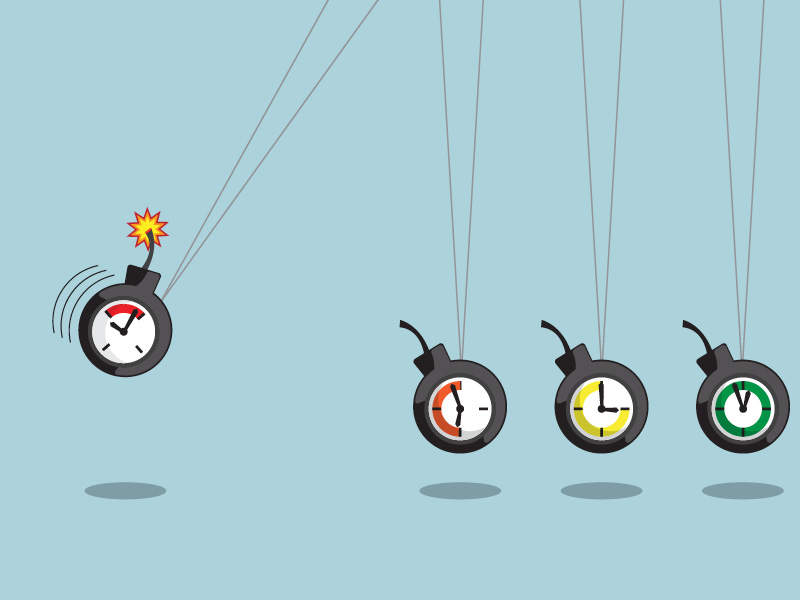Most of us have no idea how much time we waste at work every day. The reason is that we’re constantly busy; ticking things off your ‘to do’ list isn’t necessarily efficient or effective.
Being efficient is about ‘doing things right’ whereas being effective is about ‘doing the right things’, and high performers do the right things in the most efficient way possible. If you want to achieve more with less you need to start changing your mindset, and adopting small alterations to your habits. The key is to set boundaries around low-value activities, and block out time for high-value work.
Adopt these 6 ideas, one by one, and you’ll start to see a big return on your time investment.
Here are 6 ways to do the right things in the most efficient way
-
Be brutal about the meetings you attend
It takes about 2 seconds to accept a meeting request as soon as it hits your inbox, but take time to think if the meeting is being scheduled to discuss issues that could be resolved by a simple phone call or email. Workplace productivity research by Pac Executive Coaching shows 55% of workers waste one quarter of their work day in meetings. That’s nearly 3 hours per day that could be saved for more important work.
Develop the habit of asking yourself, “Is this meeting necessary?” Never attend a meeting that doesn’t have an agenda, and always ensure meetings always start on time and finish on time. Also make sure that outcomes are achieved by the completion of each meeting.
-
Create ‘do not disturb’ time
A massive 78% of white-collar workers report interruptions as major productivity killers. Next time a colleague asks you for ‘a minute’, remember that it’s not just a minute of your time that you’re likely to lose: interruptions can waste in the neighbourhood of 2 hours each day.
Create a high-performance culture by creating ‘do not disturb protocols’ within your team such as the use of headphones or even ‘do not disturb’ signs. Encourage colleagues to save their questions to ask all at once rather than constantly interrupting each other, and give each other permission to ask “Can we talk later?” if completing high-value tasks.
-
Be strategic about email
Most people react straight away to incoming email, to the point that 67% of professionals report suffering from ‘email overload’.
To be productive in today’s work environment, high-performers utilise the habit of email batching. It’s a life-changing technique – simply check your email 2 to 3 times per day in 30-minute timeslots.
-
Make weekly planning time sacred
When you fail to plan you fly by the seat of your pants, running from task to task and often only addressing urgent and reactive issues rather than getting to important, high-value work. This adversely affects the long-term return on your time.
During planning periods, block out time for high-value activities, and put aside time for low-value work such as email, reporting and administration. This allows you to be more realistic and strategic with your time.
-
Develop a clean-desk policy
Professionals who have a messy workspace, email inbox and computer files can spend up to 2 hours per day looking for information that they need to do their job, with research showing that a clean-desk policy can save workers up to 6 weeks of lost time per year. Put your work away after each task; file or delete email every time you check it. You’ll be amazed by how much more focused you are.
-
Turn procrastination into proactive planning
Procrastination affects 80% of workers, who are more likely to waste their time as they prioritise low-value activities over high-value work.
Be mindful about the activities you’re more likely to procrastinate over, and identify what your triggers are. Use your planning time to ensure you’ve set aside time for high-value work and batch short, low-value tasks together.
5 ways to change your habits
- Put your new habits in your calendar
- Stick to your calendar if only in small ways
- Have a coach, manager or partner who can hold you accountable
- Design your environment for success
- Celebrate your wins.





